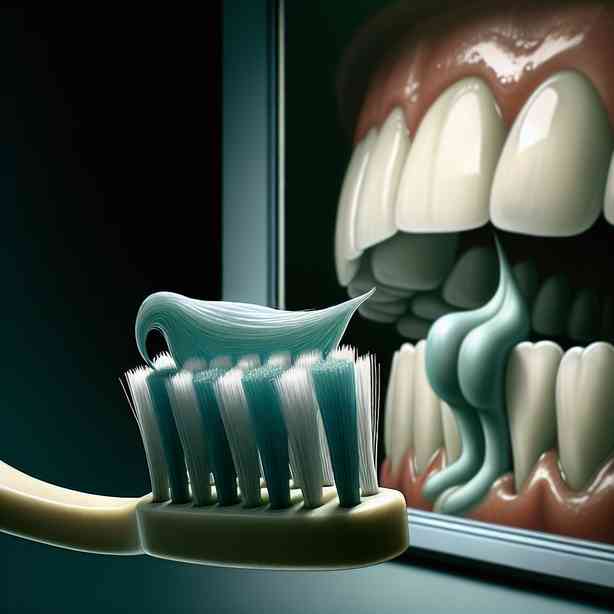
Skipping one brush may seem like a harmless decision, but the implications of neglecting this routine can be far more significant than one might initially believe. The act of brushing one’s teeth is often viewed as a mundane part of daily life, something we do automatically without much thought. However, it plays a crucial role in maintaining not only oral health but overall health as well. Understanding why even one missed brushing can be detrimental will not only motivate improved habits but also foster a deeper appreciation for this simple yet vital routine.
To begin with, let us delve into the primary reason behind the necessity of brushing our teeth: the removal of plaque. Plaque is a sticky film of bacteria that forms on our teeth throughout the day. If not removed through brushing, plaque can harden into tartar, leading to dental issues such as cavities and gum disease. Each layer of plaque invites more bacteria to thrive, creating a cycle that can easily escalate if ignored. By opting to skip even just one brushing session, you’re allowing a host of harmful bacteria to proliferate, putting your smile at risk.
Moreover, when plaque and bacteria accumulate, they can lead to gingivitis, the earliest stage of gum disease. Symptoms of gingivitis include swollen, red gums that may bleed during brushing or flossing. If left untreated, gingivitis can progress to more severe forms of gum disease, such as periodontitis, which can lead to tooth loss. The risk of these dental complications amplifies with each neglected brushing session, making it essential to maintain a consistent oral hygiene routine.
The consequences of skipping one brushing session extend beyond dentistry; they also encompass our overall health. Emerging research consistently demonstrates the connection between oral health and systemic health. Poor oral hygiene has been linked to several chronic conditions, including heart disease, diabetes, and respiratory infections. For instance, bacteria from gum disease can enter the bloodstream, potentially leading to inflammation and contributing to cardiovascular issues. This reinforces the notion that oral care is critically connected to our overall well-being.
From a psychological perspective, neglecting daily routines such as brushing can also signal deeper issues. Consistency in oral hygiene is often reflective of larger habits and self-care routines. When individuals skip brushing, it may form part of a larger pattern of neglect or self-doubt. Addressing this can involve a mindful reflection on one’s habits and a commitment to prioritizing self-care. Mindfulness techniques, such as setting reminders or linking brushing to other established habits, can encourage accountability and motivation.
It’s also important to consider the impact of skipping a brushing session on one’s breath. Fresh breath is often associated with cleanliness and health. When brushing is neglected, unpleasant odors can arise from bacteria breaking down food particles in the mouth. This can affect social interactions and personal relationships, further highlighting the importance of maintaining oral hygiene. A simple commitment to brushing regularly not only enhances your oral health but also cultivates confidence during interpersonal engagements.
In addition to the immediate effects of skipping a brush, there are long-term consequences to consider. Consistent neglect may lead to the accumulation of cavities, which can necessitate dental work such as fillings or crowns. The financial implications of dental care can be substantial, as preventive care is often more cost-effective than restorative procedures. Therefore, being diligent in your brushing habits not only protects your teeth but also saves you from unexpected expenses in the future.
For those who may think they can compensate for missed brushing by other means, it’s important to note that there is no substitute for brushing. While mouthwashes and dental floss are beneficial tools for oral hygiene, neither can fully replace the mechanical action of brushing. Mouthwashes may help to reduce bacteria and freshen breath, while flossing effectively removes debris from between teeth. However, brushing remains the cornerstone of oral health, and its absence can severely undermine your efforts to maintain a healthy mouth.
Furthermore, forming the habit of brushing twice daily can significantly enhance the effectiveness of your oral hygiene regimen. The American Dental Association recommends brushing for at least two minutes, with emphasis on all surfaces of the teeth. This commitment ensures that food particles and plaque are adequately removed, reinforcing the foundation for good dental health. Consistency in these practices can lead to positive reinforcement and paved pathways towards healthier habits, not only for ourselves but also for setting examples for others in our lives, such as children or family members.
In terms of motivation, envisioning the long-term benefits of maintaining an effective oral hygiene routine can be a great driver. Healthy teeth and gums can lead to a beautiful smile, increased self-esteem, and the physiological benefits of a healthy body. Additionally, the satisfaction and peace of mind that comes with taking good care of one’s oral health can save one from the undue stress of dental problems later on. Knowing that you are investing in your health today will only bring more benefits in the future.
In summary, the act of skipping just one brushing session may feel inconsequential, but the ramifications can ripple through various aspects of your health and well-being. The removal of plaque and bacteria is essential for preventing oral diseases, while maintaining good dental hygiene practices contributes to a healthier lifestyle overall. Beyond the physical implications, the mental and emotional aspects associated with self-care routines highlight the importance of these daily tasks. Developing a consistent brushing habit can foster not only a beautiful smile but also a robust foundation for personal health and wellness. So, the next time you consider skipping that one brush, remember the significant impact it can have—not just today, but on your future health as well. Prioritizing oral hygiene is not merely about maintaining a bright smile; it is about investing in your overall well-being.


